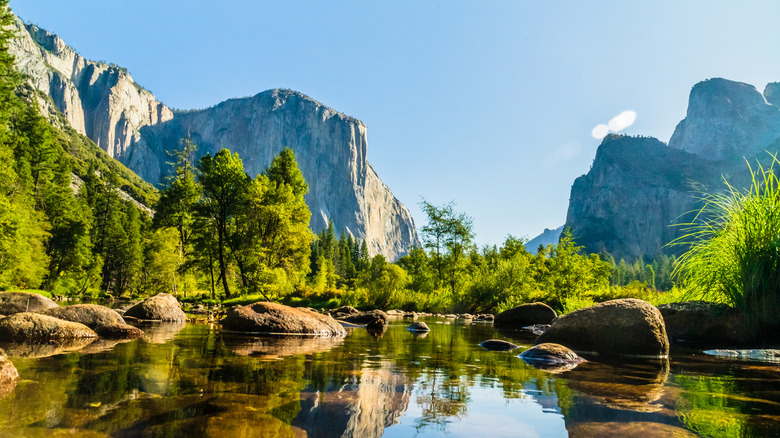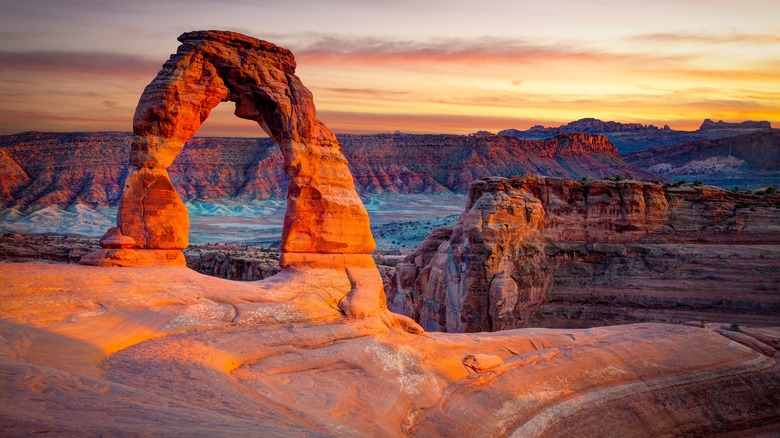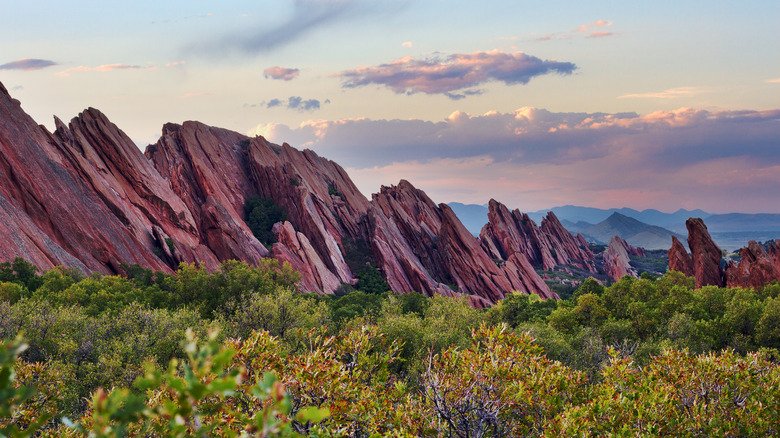What Is The Real Difference Between State And National Parks?
Drenched in majestic beauty, state and national parks never cease to amaze. These protected landscapes full of natural wonders remind us just how varied the environments of the United States are. From arid deserts in the West to lush riversides in the East and everything in between, parks are a gift. Yet, what differentiates a state park from a national park (aside from the obvious name difference) alludes many travelers. We asked National Park Service spokesperson Grace Hassler to enlighten us.
In an exclusive interview with Islands, Hassler laid out how these systems are similar yet drastically different. She explained that part of their difference is operational: The two systems have entirely separate entry-pass programs that cannot be interchanged. For instance, the majority of national parks have no entry free any day of the year, Hassler said. These fees and pass programs are broken down on the NPS website.
From the little-known national parks that are perfect for families to the famed state parks, each one is a unique natural space. Read on to discover how these magnificent parks get their distinction, and what that means for you as an explorer.
What makes national parks different from state parks?
From the most famous national parks, like Yellowstone and Arches, to the less crowded ones with abundant wildlife, like Pinnacles, there is no one-size-fits-all notion for national parks. That said, Grace Hassler explained to Islands what makes a national park, well, a national park. First and foremost, she explained, these parks are overseen by the National Park Service, an agency of the federal government, whereas state parks are looked after on a state level by a state agency.
"National parks are created by either Congress or the president, while each state has their own procedures for how to create a new state park," Hassler said. For instance, as of this writing, the newest national park is the New River Gorge National Park in West Virginia. It was given that title in 2020 after Congress passed a proposal from West Virginia Senators Shelley Moore Capito and Joe Manchin III.
Also, since they are encompassed by the federal government, national parks must follow a specific set of laws. Per Hassler, national parks are kept under the Organic Act, which created the NPS and its directives. The Organic Act was put in place in 1916 as a way to protect the natural resources of the national parks. These protected elements include not only the parks themselves, but the monuments, artifacts, wildlife, and reservations found on the land.
Are there similarities between state and national parks?
Although governed by different bodies, National Park Service spokesperson Grace Hassler told Islands that state and national parks have a shared goal: "To protect and preserve natural, cultural, historical, and other valued resources for the benefit and enjoyment of current and future generations." They also offer visitors a broad spectrum of opportunities to enjoy nature and immerse themselves in a location's history.
Every national and state park has individual characteristics to recommend it. Some parks have trails only suitable for experienced hikers, while others offer more birdwatching than you've ever seen before. There are vast differences and similarities for each. When it comes to deciding what kind of park to visit, state or national, Hassler recommends figuring out what each has to offer to help make the choice.
"Consider what experience you are looking for and which parks can best provide that experience," she suggests. "Maybe a certain park offers certain amenities or special programming that you would like to attend, or maybe you're looking for a day trip and a park is closer to where you live." Hassler also suggests keeping in mind entry fees, pets policies, and crowds. With so much flora and fauna, glacier trails, and rock outcroppings to discover in both state and national parks, the possibilities are endless.


